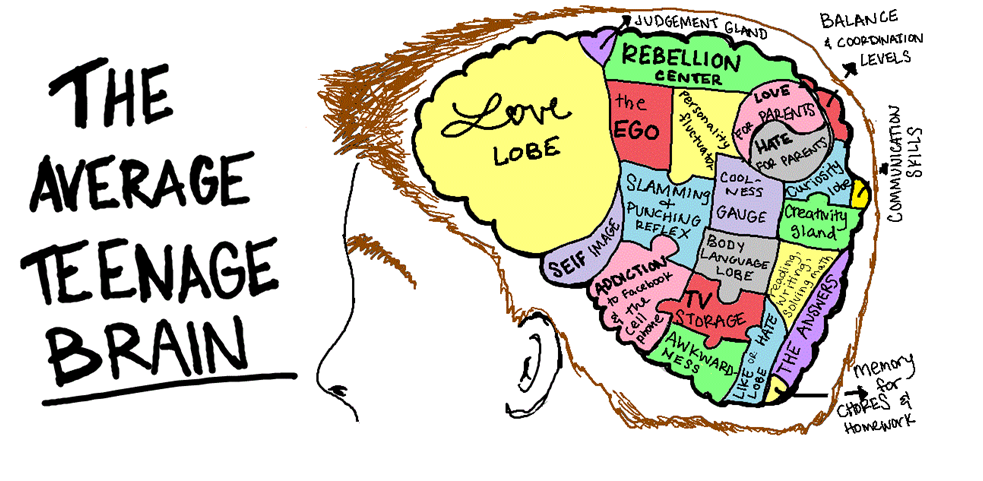The human brain reaches adult size at about 11 years of age, but it has one of its biggest periods of change and development during adolescence and does not reach full ‘maturity’ until the mid twenties.
Adolescents can be ‘tricky’ to be around at times. Supporting teenagers invariably falls to parents, carers and professionals.
The teenage brain brings great opportunity as well as challenge. During puberty the brain begins its second biggest period of development since infancy. The brain begins ‘pruning’ neurons – unused neurons wither and those used are ‘myelinated’ (coated) allowing for more efficient information processing. This prepares us for the more complex problem solving needed in adulthood.
The brain’s limbic system – that manages emotions is one of the first to mature. The frontal lobes - necessary for ‘executive thinking’ are the last. This explains the impulsive, pleasure seeking, risk taking nature typically seen in teens.
Due to the mismatch in brain growth, psychologist Laurence Steinberg suggested that a teenager's brain “has a well-developed accelerator but only a partly developed brake.” Young people can make ‘sensible’, thought out decisions but are prone to acting on ‘gut feeling’ and making decisions ‘in the moment’.

Peer approval is very important to young people at a time when they struggle to interpret and understand social cues. ‘Fight or flight’ reactions are particularly extreme during adolescence – explaining the tendency to respond very strongly to perceived criticism, stress and relationship difficulties.
Adolescents’ brains are particularly vulnerable to substance misuse – ‘thrill seeking’ is a strong driver and the dopamine hit available from substances meets this need. The adverse effects of using substances are, however, greater in adolescence. For example, if an adolescent smokes, due to the changing brain, more nicotine receptors develop. This makes it harder to stop smoking.
The teenage brain has its perks – the reward centre in the brain is especially receptive at this time and is active when they learn a new task. This makes them more adaptive and efficient than adults. Their changing brain has the capacity to take on large amounts of information. They are highly emotional beings -they feel passionately and can use this positively to raise their concerns about the world, and defend those around them.
In Professional Settings
Help your setting understand the challenges and strengths of the teenage brain. This can allow appropriate support for the challenges. As well as making the most of the opportunities of this important period of brain development.
Signposting to information, and giving time for discussion when the opportunity arises, can help young people make sense of their thinking and experiences;
Help parents to understand the changes their child is experiencing too – providing information on the teenage brain.
Solihull Approach
Encourage parents to complete the free online Solihull Training available to them. This will help them to respond sensitively to the needs of their child.
Resources
Shelf Help - Reading Well